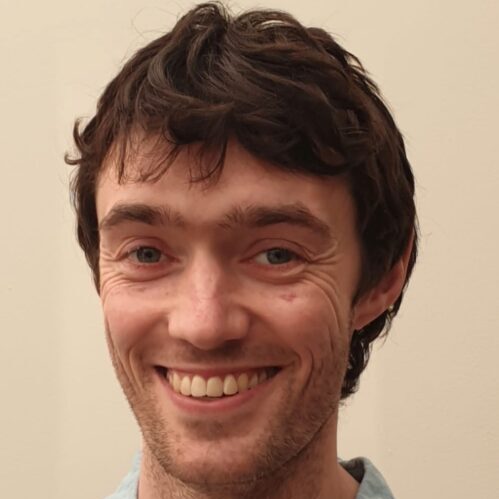
Dr. Kevin Kenna

The adult human central nervous system (CNS) boasts an extensive array of diverse cell populations. These cell populations are uniquely tailored to their own specialised biological functions, and each population exhibits its own set of selective vulnerabilities to different disease causing factors. The emergence of these specialised functions and vulnerabilities is a highly complex process that is far from being completely understood. However, we do know that much of the cellular variability seen in the human CNS is generated, or at least modifiable, at the level of RNA. This creates many opportunities to study the biological mechanisms underlying CNS disorders, as well as opportunities to discover unknown disease-causing factors and to establish new directions for therapeutic development and personalised medicine.
Our research focuses on characterising how patterns of genetic variation contribute to disease in patients afflicted by neurological disorders. Every individual harbours millions of genetic variants in their DNA, but we expect that the overwhelming majority of these variants do not cause obvious problems. Currently, it is extremely difficult to determine “which genetic variants contribute to disease in a patient?”, never mind the more challenging questions of “through what mechanisms do variants contribute to disease?” or “can this knowledge be used to guide new research?”. We specialise in working to answer these questions for especially challenging classes of rare genetic variation that are not conducive to conventional approaches. We have a strong track record in discovering high impact “protein-coding” variants, primarily in the context of the neurodegenerative disease amyotrophic lateral sclerosis (ALS). However, only 1% of genetic variants are “protein-coding” and we believe that most of the selective vulnerabilities in patients afflicted by disorders like ALS, actually results from “non-coding” variants that disrupt RNA. We have therefore been investing heavily in the development of new frameworks to evaluate rare non-coding genetic variants, and in research to discover hidden regulatory factors that could be manipulated for new kinds of research in CNS disorders.
Our approach places a strong emphasis on new bioinformatic frameworks, interpretable AI, large scale human genetics, genomics profiling of human tissue and various molecular biology techniques, as well as the infrastructure for human stem cell research established by other groups within our department.
Our work in human genetics leverages enormous volumes of data from genome-wide association studies (GWAS), whole exome sequencing and whole genome sequencing. By far our biggest focus is the ALS whole genome sequencing initiative: Project MinE (www.projectmine.com). This project involves research groups, patient organisations and additional stakeholders spread across over 20 countries and is coordinated through the ALS center at the UMC-U Brain Centre in Utrecht. We play a central role in various collaborative initiatives to maintain, grow and conduct novel analyses of this data for on-going genetic discoveries in ALS. We also work to corroborate and characterise novel genetic discoveries using a range of experimental techniques, as well as the broad expertise in human stem cell models within our department.


A major challenge to interpreting non-coding genetic variation in neurological disorders, is that so much remains unknown concerning the DNA and RNA regulatory factors that govern cell state throughout the CNS. This also presents a barrier to pursuing a variety of related fundamental and translational research questions. We study these mechanisms by combining single cell and bulk tissue genomics with computational methods and relevant molecular / neurobiology techniques. Currently we are primarily engaged in investigations of factors that govern RNA production and RNA processing in the brain and spinal cord.

Computational analyses are a major component of our research. While many aspects of our research can be conducted using existing bioinformatic tools, our research also necessitates in-house development of new tools and/or workflows to address key methodological gaps. This works leverages methods from traditional bioinformatics, database design, statistics and a wide variety of supervised and unsupervised machine learning techniques. We make the results of our research findable, accessible, interoperable and reusable through on-line web-browsers (eg als.umassmed.edu), publications and established repositories. We are also increasingly engaged in implementing our code as reusable packages supported by online documentation and tailored user interfaces, so that our work can easily be adapted for new use cases by other research groups.
Our group is part of the Utrecht Bioinformatics Center that performs Life Science research using big data analysis on DNA, genes, proteins and cells.. For more information please visit https://ubc.uu.nl/user/kkenna/





